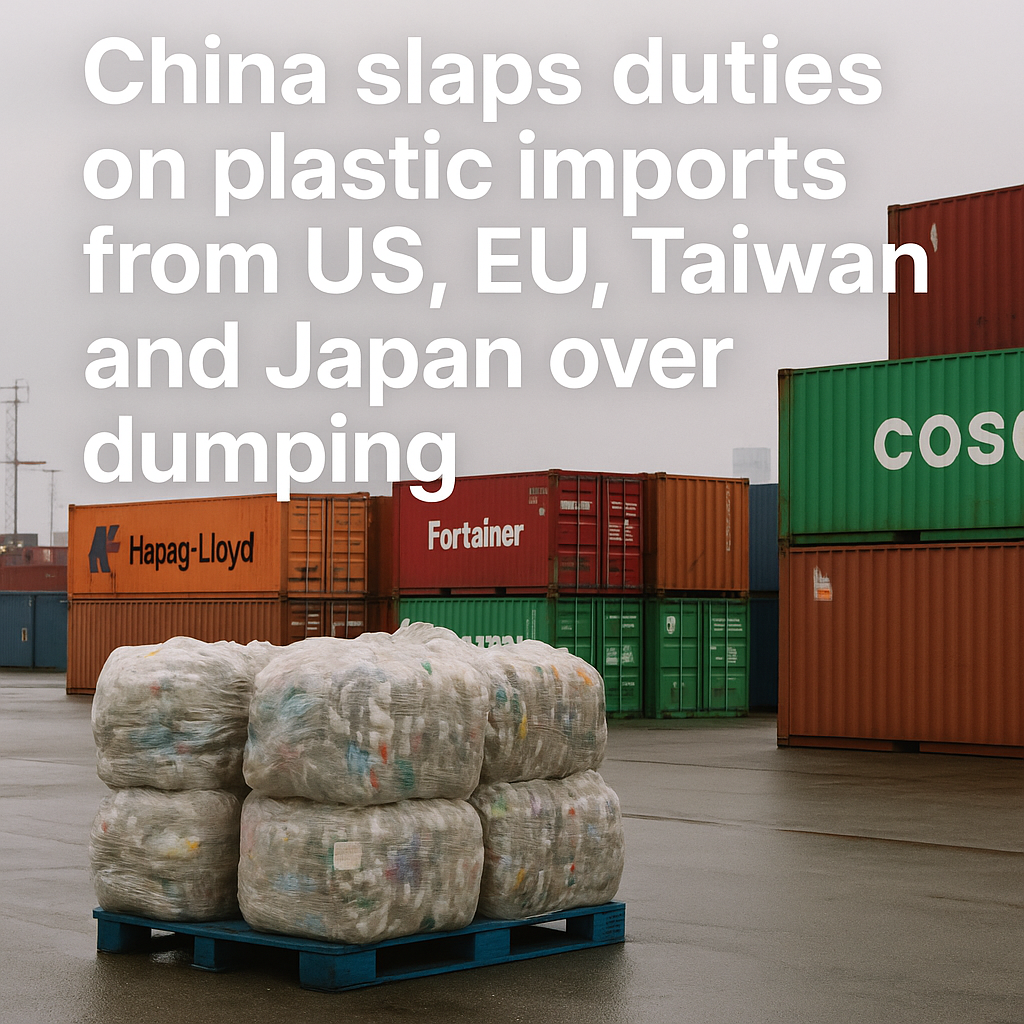In a move that could shake up global manufacturing, China has decided to impose steep tariffs—some reaching as high as 75%—on certain plastic imports from the United States, the European Union, Taiwan, and Japan. The decision comes after Beijing conducted a months-long investigation into what it believes is unfair dumping of a type of plastic that’s widely used in everyday life.
The material at the center of the dispute is polyformaldehyde copolymer—a durable plastic that quietly powers much of modern life. Found in the internal gears of your car, the precision parts of medical devices, and even in your home appliances, it’s an unsung workhorse of global industry.
Starting Monday, Chinese importers will now have to pay significantly more—between 3.8% and 74.9% more—on these products coming from the named regions. China’s Ministry of Commerce announced the new tariffs Sunday, stating they’re meant to level the playing field for domestic manufacturers who have struggled to compete with the low-priced imports.
This move, while rooted in trade policy, hits close to home for countless businesses and workers across continents. Manufacturers in France, for example, are still reeling from a similar anti-dumping ruling earlier this year that targeted the EU’s brandy exports—particularly hurting the cognac industry.
Interestingly, these new tariffs come just days after the United States and China agreed to a 90-day tariff truce, offering a rare moment of hope in their ongoing trade tensions. Now, that goodwill may be tested again.
At its heart, this isn’t just about plastics or policy. It’s about how interconnected the world has become—and how decisions in one capital ripple through factories, hospitals, homes, and livelihoods around the globe.








